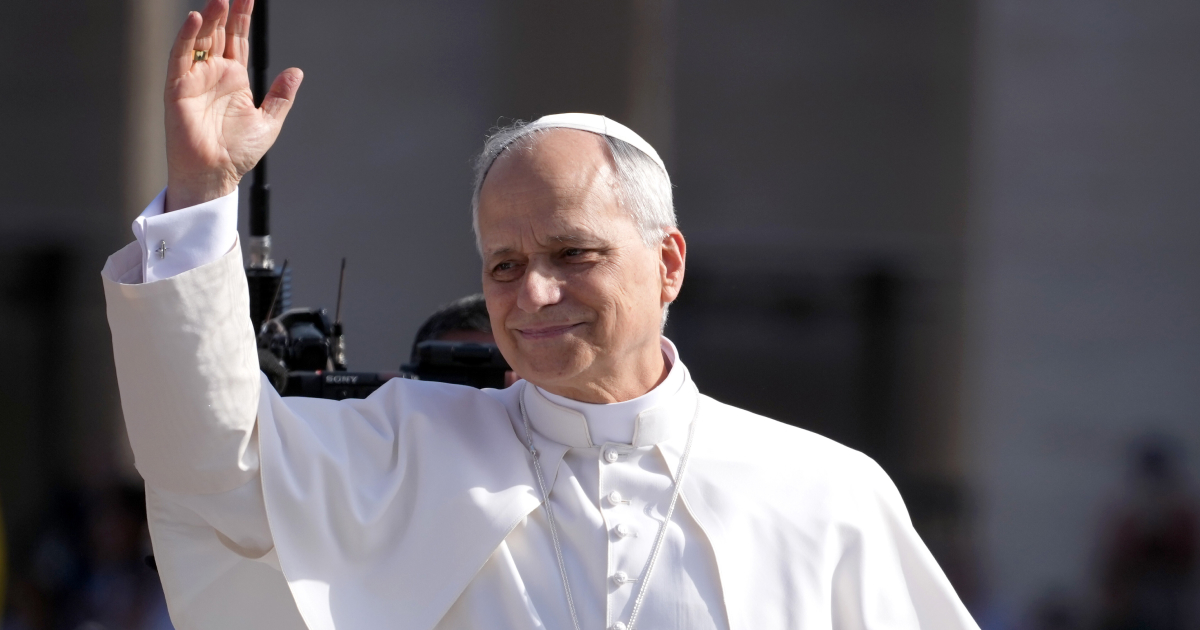This week a new set of guidelines to help facilitate faith-consistent investing was launched by the Church Investors Group (CIG), which represents religious-related organisations predominantly from the UK and Ireland and with combined investment assets of over £26 billion.
The guide, revealed at CIG’s annual conference on 19 November, aims to enable Church groups to ensure that investment managers investing on their behalf manage their assets in a way that is aligned with Christian values, focusing on what is termed faith-consistent investing (FCI). In short, the guide aims to help the likes of Catholics invest ethically.
“As a coalition of Church investors with combined investment assets of over £26 billion, we have faith in sustainable investment; but we also want our asset managers to have more room for faith,” says Stephen Beer, CIG's Chair of Trustees.
“The role of Christian ethics, as well as risk management, is important for church investors. Exactly how will depend on their beliefs and investment objectives. This new guidance is designed to empower Church and other Christian-based asset owners to think about and describe their ethical or faith-based investment perspectives, and help them with a framework to put those Christian ethical perspectives at the heart of how they assess, select, appoint and monitor managers.
“Church investors should not have to make do with investment solutions which are not designed with Christian faith in mind. Our aim is to help members form long-term relationships with asset managers, built on mutual understanding, that enable both portfolios and humanity to flourish.”
The Church Investors Group has 67 members, with membership comprised of denominations, dioceses, religious orders and Christian-based charities. It aims to promote ethical investment for the public benefit and, in doing so, seeks to encourage the formulation of investment policies based on Christian ethical principles and to drive responsible business practice through engagement with company management.
Entitled "Working with your investment managers: A guide to support church investor considering faith-consistent approaches", the new guidance, while primarily aimed at the group’s members, is also publicly available for use by other Christian groups.
The guidance aims to "help Christians to engage constructively" with investment managers. It recognises, CIG says, that Church investors want to avoid making investments contrary to their beliefs, and to invest in a way that works towards tangible and positive social or environmental outcomes or toward both.
"At the heart of this project is a framework to help Christian investors set clear expectations for the asset managers who enact their mandates,” says Dr Rory Sullivan, CEO of Chronos Sustainability, who co-authored the guide.
“This creates alignment right through the value chain in terms of the systems and processes they expect managers to have in place, the specific issues they expect managers to consider, and the outcomes and impacts they expect managers to achieve.
“This helps faith-consistent investors send a loud signal to the wider global investment markets, and while designed for Christian organisations, this guide should also prove invaluable to any mission-based organisation seeking to align its investment to its mission and values.”
The new guide’s launch follows the Mensuram Bonam summit held on 11 and 12 November for Catholic investors in London, which sought to boost faith-consistent investment for the estimated $1.75 trillion held by Christian investors around the world.
A total of 90 financial sector leaders and church leaders from 16 countries, all of whom oversee significant investment portfolios, came together at the summit, which was only the second of its kind to occur.
The summit sought to engage the "eco-system of Christian faith-aligned capital", say those involved in the summit, with the "aim of turbocharging the market for investments that fit with Christian beliefs".
It was organised by Jean-Baptiste de Franssu, President of the Vatican Bank, along with five international specialist asset managers based in Europe and the US. It marks the latest move from policy to practice following the publication of Mensuram Bonam, the Vatican Pontifical Academy of Social Sciences’ guidance on faith-consistent investing.
Published in 2022, the document is designed for Catholic institutions and individuals entrusted with assets “to be invested, rather than merely spent” and for “all people of goodwill”. The publication reflects the Church’s desire to ensure that asset management is “directed to reflect this gift of God to the human family, by serving the common good, respecting justice and ethical standards”.
Catholic faith-consistent investing, in common with other Christian FCI, focusses on investing in sectors that deliver societal and environmental good, and areas where investment could support improvements to business practice. Alongside this, there are various exclusion criteria for Catholic investors, including addictive substances, pornography, labour law violations, nuclear weapons and sanctity of life.
Exclusive new research regarding FCI criteria published by various Catholic bishops' conferences across the world has identified differences between those criteria from country to country, notes the summit's organisers. This reflects the decentralised way that “Church money” is managed, with this lack of coherence identified as one of the barriers to the growth of FCI.
The conference's organisers highlighted that attendees have committed to working together, both during and after the conference, to make Catholic FCI easier to access, and to better cater for this significant market. Representatives of Protestant churches also attended the conference to share their experience of embedding FCI in their portfolio, reflecting the desire of Mensuram Bonam’s authors to approach these issues in an ecumenical (Christian-wide) way.
“There are financial management firms specialising in servicing Christian faith-aligned capital, however the development of this market remains far too modest, and the diversity of offerings is limited,” says Jean-Baptiste de Franssu.
“It’s crucial that financial leaders involved with Christian faith-aligned capital commit to developing financial instruments that balance financial performance, manage non-financial risks and strive to maximise positive impacts on society and the environment.”
Photo: Aerial view of cargo ships waiting to transit the Panama Canal opposite Panama City, Panama, 28 June 2024. (Photo by MARTIN BERNETTI/AFP via Getty Images.)
This week a new set of guidelines to help facilitate faith-consistent investing was launched by the Church Investors Group (CIG), which represents religious-related organisations predominantly from the UK and Ireland and with combined investment assets of over £26 billion.
The guide, revealed at CIG’s annual conference on 19 November, aims to enable Church groups to ensure that investment managers investing on their behalf manage their assets in a way that is aligned with Christian values, focusing on what is termed faith-consistent investing (FCI). In short, the guide aims to help the likes of Catholics invest ethically.
“As a coalition of Church investors with combined investment assets of over £26 billion, we have faith in sustainable investment; but we also want our asset managers to have more room for faith,” says Stephen Beer, CIG's Chair of Trustees.
“The role of Christian ethics, as well as risk management, is important for church investors. Exactly how will depend on their beliefs and investment objectives. This new guidance is designed to empower Church and other Christian-based asset owners to think about and describe their ethical or faith-based investment perspectives, and help them with a framework to put those Christian ethical perspectives at the heart of how they assess, select, appoint and monitor managers.
“Church investors should not have to make do with investment solutions which are not designed with Christian faith in mind. Our aim is to help members form long-term relationships with asset managers, built on mutual understanding, that enable both portfolios and humanity to flourish.”
The <a href="https://churchinvestorsgroup.org.uk/"><mark style="background-color:rgba(0, 0, 0, 0)" class="has-inline-color has-vivid-cyan-blue-color">Church Investors Group</mark></a> has 67 members, with membership comprised of denominations, dioceses, religious orders and Christian-based charities. It aims to promote ethical investment for the public benefit and, in doing so, seeks to encourage the formulation of investment policies based on Christian ethical principles and to drive responsible business practice through engagement with company management.
Entitled "Working with your investment managers: A guide to support church investor considering faith-consistent approaches", the new <a href="https://churchinvestorsgroup.org.uk/working-with-your-investment-managers/"><mark style="background-color:rgba(0, 0, 0, 0)" class="has-inline-color has-vivid-cyan-blue-color">guidance</mark></a>, while primarily aimed at the group’s <a href="https://churchinvestorsgroup.org.uk/about/cig-membership/" target="_blank" rel="noreferrer noopener"><mark style="background-color:rgba(0, 0, 0, 0)" class="has-inline-color has-vivid-cyan-blue-color">members</mark></a>, is also publicly available for use by other Christian groups.
The guidance aims to "help Christians to engage constructively" with investment managers. It recognises, CIG says, that Church investors want to avoid making investments contrary to their beliefs, and to invest in a way that works towards tangible and positive social or environmental outcomes or toward both.
"At the heart of this project is a framework to help Christian investors set clear expectations for the asset managers who enact their mandates,” says Dr Rory Sullivan, CEO of Chronos Sustainability, who co-authored the guide.
“This creates alignment right through the value chain in terms of the systems and processes they expect managers to have in place, the specific issues they expect managers to consider, and the outcomes and impacts they expect managers to achieve.
“This helps faith-consistent investors send a loud signal to the wider global investment markets, and while designed for Christian organisations, this guide should also prove invaluable to any mission-based organisation seeking to align its investment to its mission and values.”
The new guide’s launch follows the Mensuram Bonam summit held on 11 and 12 November for Catholic investors in London, which sought to boost faith-consistent investment for the estimated $1.75 trillion held by Christian investors around the world.
A total of 90 financial sector leaders and church leaders from 16 countries, all of whom oversee significant investment portfolios, came together at the summit, which was only the second of its kind to occur.
The summit sought to engage the "eco-system of Christian faith-aligned capital", say those involved in the summit, with the "aim of turbocharging the market for investments that fit with Christian beliefs".
It was organised by Jean-Baptiste de Franssu, President of the Vatican Bank, along with five international specialist asset managers based in Europe and the US. It marks the latest move from policy to practice following the publication of <em>Mensuram Bonam</em>, the Vatican Pontifical Academy of Social Sciences’ guidance on faith-consistent investing.
Published in 2022, the document is designed for Catholic institutions and individuals entrusted with assets “to be invested, rather than merely spent” and for “all people of goodwill”. The <a href="https://www.pass.va/en/publications/other-publications/mensuram_bonam_eng.html#_ftn2"><mark style="background-color:rgba(0, 0, 0, 0)" class="has-inline-color has-vivid-cyan-blue-color">publication</mark></a> reflects the Church’s desire to ensure that asset management is “directed to reflect this gift of God to the human family, by serving the common good, respecting justice and ethical standards”.
Catholic faith-consistent investing, in common with other Christian FCI, focusses on investing in sectors that deliver societal and environmental good, and areas where investment could support improvements to business practice. Alongside this, there are various exclusion criteria for Catholic investors, including addictive substances, pornography, labour law violations, nuclear weapons and sanctity of life.
Exclusive new research regarding FCI criteria published by various Catholic bishops' conferences across the world has identified differences between those criteria from country to country, notes the summit's organisers. This reflects the decentralised way that “Church money” is managed, with this lack of coherence identified as one of the barriers to the growth of FCI.
The conference's organisers highlighted that attendees have committed to working together, both during and after the conference, to make Catholic FCI easier to access, and to better cater for this significant market. Representatives of Protestant churches also attended the conference to share their experience of embedding FCI in their portfolio, reflecting the desire of <em>Mensuram Bonam</em>’s authors to approach these issues in an ecumenical (Christian-wide) way.
“There are financial management firms specialising in servicing Christian faith-aligned capital, however the development of this market remains far too modest, and the diversity of offerings is limited,” says Jean-Baptiste de Franssu.
“It’s crucial that financial leaders involved with Christian faith-aligned capital commit to developing financial instruments that balance financial performance, manage non-financial risks and strive to maximise positive impacts on society and the environment.”
<em>Photo: Aerial view of cargo ships waiting to transit the Panama Canal opposite Panama City, Panama, 28 June 2024. (Photo by MARTIN BERNETTI/AFP via Getty Images.)</em>


















